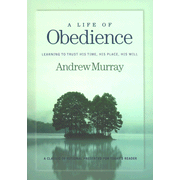Dr. Dan Reed was born in Birmingham, Alabama in 1951. He was saved at the Woodland Avenue Baptist Church in 1973 while studying engineering at Auburn University. Sensing the call to preach in 1973 he enrolled at Tennessee Temple College under the ministry of Dr. Lee Roberson. Finishing his B.A. in December of 1975 he was called to Emden, Missouri , a town of 61, to pastor the Community Baptist Church. Pastor Reed has started two churches and two Christian schools during his 33-year ministry. He is currently the pastor of Harvest Baptist Church of Acworth, Georgia. (Learn more about Dr. Reed HERE)
THE FOOLISHNESS OF HATRED
Scripture Reading: Genesis 16:4,5, Luke 18:9, Proverbs 11:12
Text: Proverbs 11:12 “He that is void of wisdom despiseth his neighbor; but a man of understanding holdeth his peace.”
The book of Proverbs is a contrast between wisdom and foolishness. Solomon says that a man who hates or despises his neighbor is foolish, or lacks wisdom. I think it was Booker T. Washington who said, “No man shall so degrade my soul as to make me hate him.” Hatred, which is another word for “despise,” brings the one hating to a much lower level than the one he hates. The main reason people hate, Solomon says, is that they lack wisdom. Really it is our selfishness which causes us to despise someone. When someone does not respond to us the way we think they should, when they treat us in a way we perceive as disrespect or disdain, or maybe they just neglect us and pay us no mind at all, then we tend to despise them. We are the center of our universe and we tend to judge people not by who they are but by how they treat us! Solomon goes on to say here that a man of understanding is silent when people do things that offend him. The reason he is silent is because he knows people and understands first, I am no better than anyone else, and second, if someone mistreats me, they deserve my pity and my prayer, maybe my instruction, but not my hatred. What is that wisdom that keeps us from despising others?
(1) We are all made in God’s image- Every human being is made in God’s image and thus, his differences are put there by God. To despise another human being is to despise God. Should the rabbit despise the turtle because it is much slower? Should the giraffe despise the deer because it cannot reach as high? “Who art thou that judgeth another man’s servant, to his own master he standeth or falleth.”(Romans14:4) We must judge right and wrong, of course, but we must never despise another human being made in God’s image.
(2) Another reason people despise others is because they have a false standard of righteousness. Jesus told the parable of the self righteous Pharisee and the publican to those who “trusted in themselves that they were righteous and despised others.” The Pharisees had set up a false standard of righteousness. Jesus said about them, “they say and do not.” They were hypocrites. Hypocrisy loads men with guilt which causes people to be cruel to each other. A man who is dirty already doesn’t mind getting dirtier. People who live with perpetual guilt because they have set up a standard they themselves do not keep are usually very hard on other people, even despising them.
(3) Jealousy causes people to despise each other. Hagar despised Sarai after she conceived because she was jealous. Jealousy is as cruel as the grave. Scripture says, “Who can stand before envy.” Jealousy caused Saul to chase David like a hound for ten years. At times Saul wanted to repent but could not because, “Who can stand before envy.” Jealousy caused Cain to murder Abel because God accepted Abel’s sacrifice and rejected his. The Pharisees delivered up Jesus because of envy. Jealousy causes hatred and according to Jesus, hatred is the root of murder (Matthew 5:21,22).
If there is anyone in this world you despise, it shows you lack understanding! I am not commanded in the Bible to like everybody, but I am commanded to love even my enemies. To love my enemies means I must treat them biblically!
Questions to Ponder
1. The scripture says that Saul “eyed David from that day forward.” What does that mean and what caused Saul’s jealousy and resentment of David? (I Samuel 18)
2. How do we conquer the emotion of jealousy? I Thessalonians 5:18
_________________________
Would you consider purchasing…
 |
Jamieson Fausset Brown/Matthew Poole/Christ in the Bible/Matthew Henry Commentaries, 16 Volumes
By Hendrickson Publishers
* Fill your shelves with respected references—and your pockets with substantial savings—when you choose this handsome collection! Includes Jamieson-Fausset-Brown Bible Commentary, Matthew Poole’s Commentary, The Christ in the Bible Commentary, and Matthew Henry’s Commentary on the Whole Bible. 16 hardcovers. Due to the weight of the Hendrickson Commentary Library, a $60 surcharge will be added to orders shipped internationally. |










